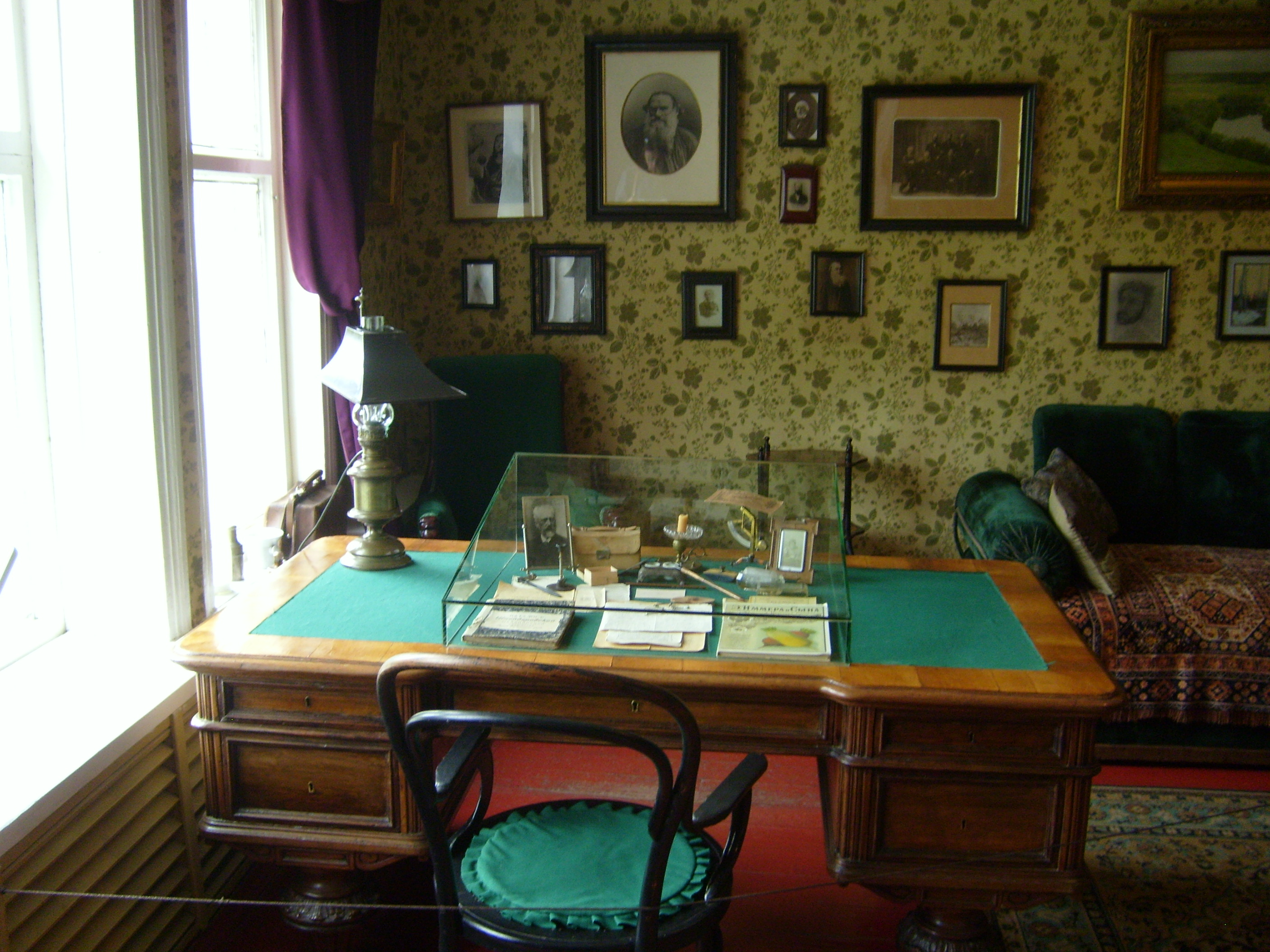 |
| Desk of Anton Chekhov at Melikhovo estate museum. Photo taken in 2008 by SiefkinDR, CC-BY-SA 3.0 via Wikimedia. |
 Chekhov: The Comic Stories by Harvey J. Pitcher
Chekhov: The Comic Stories by Harvey J. PitcherMy rating: 4 of 5 stars
Chekhov is mentioned by Harold Bloom (How to Read and Why, p. 36) as one of the short story authors who had:
...achieved something like perfection in their art.
Bloom sees the lineage from Shakespeare to Turgenev to Chekhov to Hemingway, which stems from their:
...affinity with their landscape and human figures...
It is interesting that Mortimer Adler (How to Read a Book) doesn't mention Chekhov (or Turgenev), yet Bloom and Italo Calvino (Why Read the Classics, p. 185) see Chekhov as focused on:
...the relationships between the facts of existence... [and his story The Steppes was] the prototype for so much modern narrative.
I wonder if this is the result of Adler's focus on the Western canon (in its narrowest sense of the term)? The interesting thing about this particular set of short stories is its relatively recent translation into English, and its focus on comedy. Calvino mentions The Steppes, while Bloom mentions several other stories, none of which appear in this collection. So there is more reading of Chekhov for me to do. Yet this collection is funny.
I wondered whether Oscar Wilde had anything to say about Chekhov. Surprisingly, it was Stephen Fry (who played Oscar Wilde in the 1997 movie Wilde) who puts the two together in an interesting way. Fry writes:
I wondered whether Oscar Wilde had anything to say about Chekhov. Surprisingly, it was Stephen Fry (who played Oscar Wilde in the 1997 movie Wilde) who puts the two together in an interesting way. Fry writes:
Chekhov is probably better known in Britain for his plays than for his prose. For many, however, it was his short stories that mark the high water of his genius. It might at first glance be hard for those not used to his style of narrative to see what the fuss is about (and fuss there is: for most authors and lovers of literature Chekhov is incomparably the greatest short story writer there ever was): these tales appear to be about nothing.
Fry also says (and I quote at length):
Anton Chekhov is a case in point. Grim. Russian. Gloomy. Stark. Bleak. Melancholic. Sorrowful. Suicidal. Tragic. Well, I’ll give you Russian. He was that all right. As for the rest. Grim? Chekhov? Bleak? No, no. Chekhov was the foremost comic artist of his age. If by comic we mean something more than slapstick, farce or revue. There are satirists, like Swift, who cannot hide the fact that they believe humanity in all its forms from the grandest king to the lowliest serf to be nothing short of pathetic, ludicrous and disgusting; there are others, like Chekhov who find it just as hard to conceal their sympathy, kinship and fellow feeling.
Having read almost all of Hemingway's short stories, Turgenev's Sketches from a Hunter's Album, and Guy de Maupassant's A Parisian Affair, I see similar assumptions of human nature, and indeed a similar philosophy and aesthetic with Chekhov picking up from where Turgenev (channelling Shakespeare) left off. Whether I could put this correctly in a theory-of-literature perspective is another thing, but certainly the brilliance is obvious.
Some of Chekhov's stories could easily be adapted to the social life of Canberra, Australia's capital, and its concentration of public servants. Maybe less so now, but certainly in the 1990s and early 2000s. And stories of musicians, doctors, and emerging technologies (such as the telephone) retain their humour despite more than a century's passing.
The test of good literary work is its ability to stretch beyond ephemera. Chekhov achieves this, and his sense of humour is not lost on a contemporary audience.
View all my reviews
 Donate
Donate





